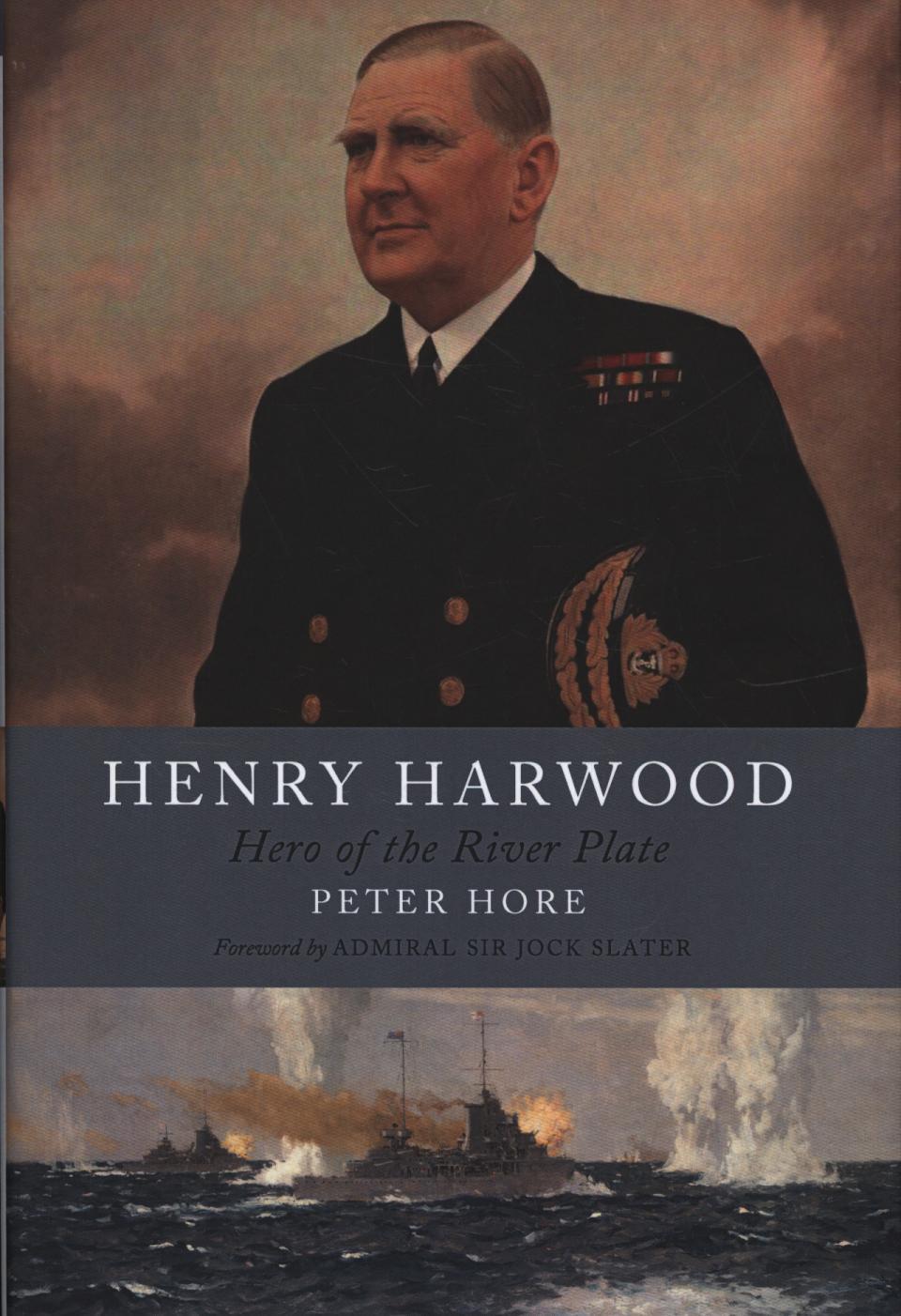Henry Harwood

Henry Harwood
Admiral Sir Henry Harwood's wider naval career was remarkable and epitomised the Royal Navy in the first half of the twentieth century. He became a naval cadet in 1903, specialised as a torpedo officer in 1911, and for his services in the First World War was awarded the OBE in 1919. He was one of the Navy's intellectuals, gaining first class passes in all his examinations and, during his interwar service on the South American station, learning Spanish. During his service in important staff appointments and at the Imperial Defence College, he made a particular study of international relations and, in the light of perceived fallings at sea in the First World War, of tactics and command. He was thus well-qualified when in 1936 he became commodore in command of the South American division of the America and West Indies station, and well prepared to meet and defeat the German pocket battleship _Admiral Graf Spee_ with his inferior force of cruisers in 1939.
He was promoted assistant chief of the naval staff at the Admiralty, and, in 1942, appointed Commander-in-Chief, Mediterranean, in succession to Sir Andrew Cunningham. Then, commanding a fleet too enfeebled for its tasks, he found Montgomery plotting against him and Churchill loosing confidence in him before being relieved of his command. Invalided out of the Navy in 1945, and subsequently blamed by many for the Navy's perceived failings in the Mediterranean, he died a disappointed man in 1950.
The author has been given exclusive and unique access to the Harwood family archives and, in the light of these previously unpublished papers, has set about rehabilitating the character, career and achievements of this great British admiral. For all historians and enthusiasts of the Royal Navy in the Second World War, this will be essential reading.
PRP: 170.00 Lei
Acesta este Prețul Recomandat de Producător. Prețul de vânzare al produsului este afișat mai jos.
153.00Lei
153.00Lei
170.00 LeiIndisponibil
Descrierea produsului
Admiral Sir Henry Harwood's wider naval career was remarkable and epitomised the Royal Navy in the first half of the twentieth century. He became a naval cadet in 1903, specialised as a torpedo officer in 1911, and for his services in the First World War was awarded the OBE in 1919. He was one of the Navy's intellectuals, gaining first class passes in all his examinations and, during his interwar service on the South American station, learning Spanish. During his service in important staff appointments and at the Imperial Defence College, he made a particular study of international relations and, in the light of perceived fallings at sea in the First World War, of tactics and command. He was thus well-qualified when in 1936 he became commodore in command of the South American division of the America and West Indies station, and well prepared to meet and defeat the German pocket battleship _Admiral Graf Spee_ with his inferior force of cruisers in 1939.
He was promoted assistant chief of the naval staff at the Admiralty, and, in 1942, appointed Commander-in-Chief, Mediterranean, in succession to Sir Andrew Cunningham. Then, commanding a fleet too enfeebled for its tasks, he found Montgomery plotting against him and Churchill loosing confidence in him before being relieved of his command. Invalided out of the Navy in 1945, and subsequently blamed by many for the Navy's perceived failings in the Mediterranean, he died a disappointed man in 1950.
The author has been given exclusive and unique access to the Harwood family archives and, in the light of these previously unpublished papers, has set about rehabilitating the character, career and achievements of this great British admiral. For all historians and enthusiasts of the Royal Navy in the Second World War, this will be essential reading.
Detaliile produsului










